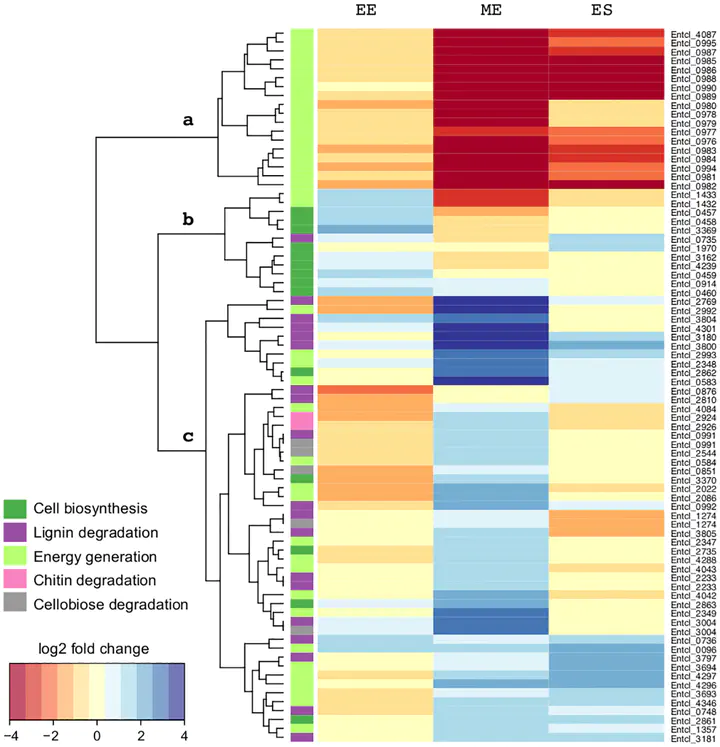Multi-time series RNA-Seq analysis of Enterobacter lignolyticus SCF1 during growth in lignin-amended medium
 Image credit: [DeAngelis Lab]
Image credit: [DeAngelis Lab]Abstract
The production of lignocellulosic-derived biofuels is a highly promising source of alternative energy, but it has been constrained by the lack of a microbial platform capable to efficiently degrade this recalcitrant material and cope with by-products that can be toxic to cells. Species that naturally grow in environments where carbon is mainly available as lignin are promising for finding new ways of removing the lignin that protects cellulose for improved conversion of lignin to fuel precursors. Enterobacter lignolyticus SCF1 is a facultative anaerobic Gammaproteobacteria isolated from tropical rain forest soil collected in El Yunque forest, Puerto Rico under anoxic growth conditions with lignin as sole carbon source. Whole transcriptome analysis of SCF1 during E.lignolyticus SCF1 lignin degradation was conducted on cells grown in the presence (0.1%, w/w) and the absence of lignin, where samples were taken at three different times during growth, beginning of exponential phase, mid-exponential phase and beginning of stationary phase. Lignin-amended cultures achieved twice the cell biomass as unamended cultures over three days, and in this time degraded 60% of lignin. Transcripts in early exponential phase reflected this accelerated growth. A complement of laccases, aryl-alcohol dehydrogenases, and peroxidases were most up-regulated in lignin amended conditions in mid-exponential and early stationary phases compared to unamended growth. The association of hydrogen production by way of the formate hydrogenlyase complex with lignin degradation suggests a possible value added to lignin degradation in the future.
Supplementary notes can be added here, including code and math.